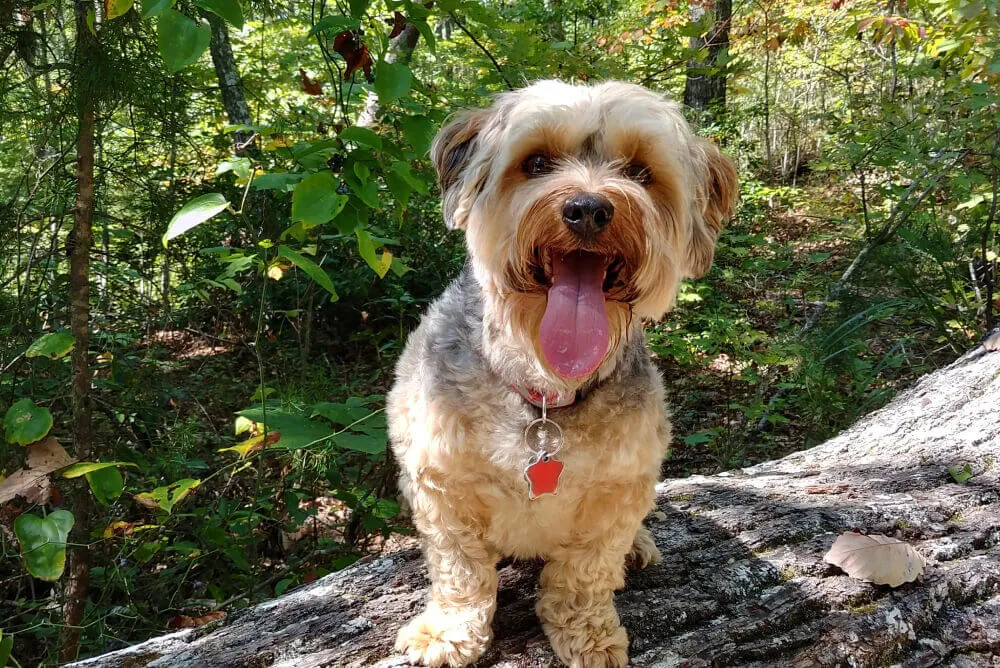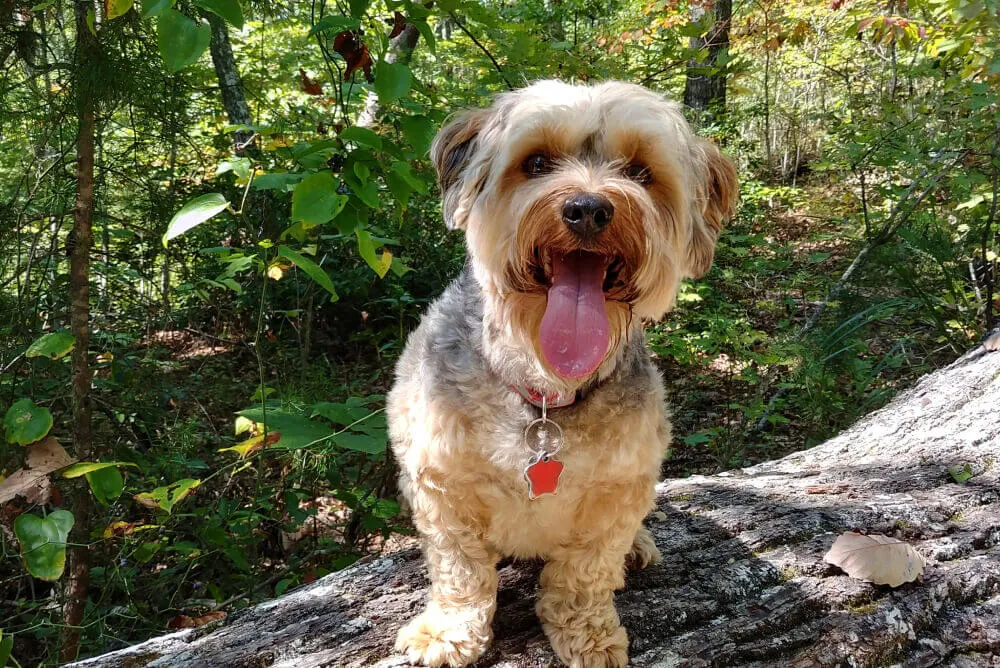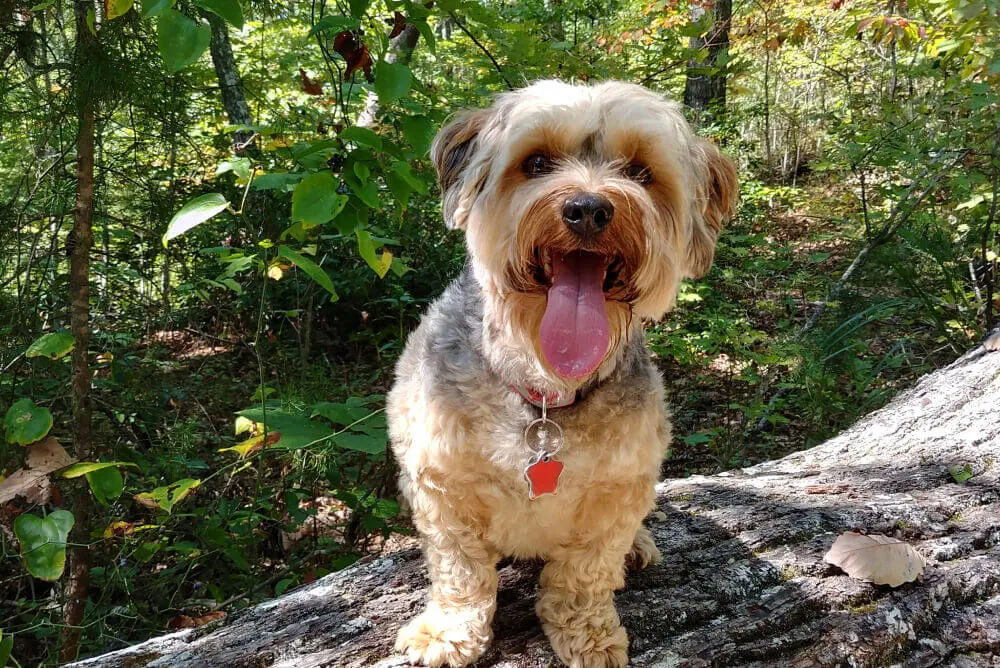Welcoming a delightful Yorkie Shih Tzu mix into your home brings immense joy and a host of responsibilities, not least among them ensuring they receive optimal nutrition. As a loving pet parent, you understand that your furry companion’s diet is fundamental to their long-term health and happiness. Just like purebred Yorkshire Terriers, a Yorkie Shih Tzu mix has specific dietary needs that evolve throughout their life, making the choice of dog food crucial. This comprehensive guide will help you navigate the options, focusing on finding the best dog food tailored to your beloved mix’s age and unique requirements.
Understanding these changing nutritional demands is the first step toward providing a diet that supports their energetic puppy antics, their vibrant adult years, and their graceful golden age. From the right balance of proteins and fats to essential vitamins and minerals, selecting an appropriate formula can prevent common health issues and ensure your Yorkie Shih Tzu thrives.
What’s the Best Dog Food for Your Yorkie Shih Tzu Mix?
The pivotal answer to this question hinges entirely on the AGE and LIFE STAGE of your specific Yorkie Shih Tzu mix. Nutritional requirements are not one-size-fits-all; a puppy, an adult, and a senior dog each have distinct dietary needs that must be met for optimal long-term health.
Consider this: A dog food formulated for an adult Yorkie Shih Tzu mix may provide insufficient calcium for a growing puppy, or contain too little protein and excessive calories for a less active senior dog. These differences are significant and extend beyond basic macronutrients. For instance, while a puppy might require a higher percentage of certain essential amino acids like leucine (around 1.29%), an adult dog needs a lower amount (approximately 0.68%). Similarly, senior dogs benefit from easily digestible proteins and fewer calories per serving to manage their metabolism and maintain a healthy weight.
While “All Life Stages” foods are designed to meet the rigorous nutritional demands of puppies, they might oversupply protein, fats, and calories to adult and senior dogs, depending on your dog’s lifestyle. Therefore, choosing a food specifically designed for an adult or senior stage is often a more suitable option. Ensuring regular veterinary check-ups and finding reliable local care, perhaps even considering a rat vet near me for exotic pet needs, underscores the importance of tailored health management.
The Bottom Line: Tailoring Nutrition to Life Stages
Since there are no official nutrient guidelines specifically for a Yorkie Shih Tzu mix, nor for any particular breed, achieving optimal long-term health for your dog requires a strategic approach. It is imperative to select a dog food formulated to match the nutrient profile that best suits your Yorkie Shih Tzu mix’s age. This ensures they receive the precise balance of nutrients needed for their current developmental stage.
Below, we’ll explore suitable options for Yorkie Shih Tzu mixes across their various life stages. Remember that within each category, there may be specific foods better suited for your dog’s individual lifestyle, health conditions, or taste preferences.
The Three Life Stages of a Yorkie Shih Tzu Mix
Understanding the progression of your dog’s life stages is crucial for making informed dietary choices. While these are general guidelines, they provide a helpful framework for selecting appropriate nutrition.
| Life Stage | Age |
|---|---|
| Puppy | Under 9-12 months |
| Adult | Over 9-12 months |
| Senior | 11+ years |
These age ranges are derived from multiple credible sources and offer a useful guide to help you find the best food for your Yorkie Shih Tzu mix.
Key Nutritional Considerations for Your Yorkie Shih Tzu Mix
Yorkie Shih Tzu mixes, being small breed dogs, often share similar nutritional requirements with their parent breeds. Their small size means they have faster metabolisms and need a diet that is calorie-dense but also precisely balanced.
Puppy Stage (Under 9-12 Months)
During their rapid growth phase, Yorkie Shih Tzu puppies need a diet specifically formulated for small breed puppies. This includes:
- Higher Calorie and Protein Content: To support their intense growth and energy levels.
- Appropriate Calcium-to-Phosphorus Ratio: Essential for healthy bone and teeth development. An imbalance can lead to skeletal problems.
- DHA: Supports brain and eye development, crucial for cognitive function and learning.
- Small Kibble Size: Easier for their tiny mouths and developing teeth to chew and digest.
Adult Stage (Over 9-12 Months)
Once your Yorkie Shih Tzu mix reaches adulthood, their growth slows, and their energy needs stabilize. The focus shifts to maintenance and overall health.
- Balanced Protein and Fat: To maintain muscle mass and provide sustained energy without leading to weight gain.
- Omega Fatty Acids: For healthy skin and a shiny coat, which is particularly important for breeds with long, flowing hair like the Shih Tzu.
- Antioxidants: To support a robust immune system.
- Controlled Calorie Intake: To prevent obesity, a common issue in small breeds.
 A playful Yorkie Shih Tzu mix puppy with a bright, healthy coat, enjoying a small bowl of kibble.
A playful Yorkie Shih Tzu mix puppy with a bright, healthy coat, enjoying a small bowl of kibble.
Senior Stage (11+ Years)
As your Yorkie Shih Tzu mix enters their senior years, their metabolism slows further, and they may experience age-related issues. Their diet should adapt to these changes.
- Lower Calorie Content: To help manage weight as activity levels typically decrease.
- Easily Digestible Proteins: To support muscle maintenance without taxing their digestive system.
- Joint Support: Ingredients like glucosamine and chondroitin can help maintain joint health, crucial for small dogs prone to orthopedic issues.
- Fiber: To promote healthy digestion and regularity.
- Kidney Health: Formulas with controlled phosphorus levels can support aging kidneys.
Transitioning to a New Food Safely
Switching your Yorkie Shih Tzu mix to a new food should be done gradually to prevent digestive upset. Rapid changes can lead to vomiting, diarrhea, or a loss of appetite.
 A senior Yorkie Shih Tzu mix looking content while resting, indicating good overall health from proper nutrition.Dr. Gary Richter shares a simple feeding tip that can help significantly reduce your Yorkie Shih Tzu mix’s risk of getting sick when you switch to a new dog food: gradually introduce the new food over a period of 7-10 days, slowly increasing the proportion of new food while decreasing the old. This allows your dog’s digestive system to adjust comfortably.
A senior Yorkie Shih Tzu mix looking content while resting, indicating good overall health from proper nutrition.Dr. Gary Richter shares a simple feeding tip that can help significantly reduce your Yorkie Shih Tzu mix’s risk of getting sick when you switch to a new dog food: gradually introduce the new food over a period of 7-10 days, slowly increasing the proportion of new food while decreasing the old. This allows your dog’s digestive system to adjust comfortably.
Do Yorkie Shih Tzu Mixes Need Special Dog Food?
While there are no specific pet food industry or FDA nutrient standards established solely for Yorkie Shih Tzu mixes, their small size and genetic predispositions mean they benefit greatly from life-stage appropriate formulas. The differing nutritional needs of puppies, adults, and seniors make it crucial to select a food that matches the life stage of your particular dog. Choosing a high-quality food designed for small breeds is generally recommended. To ensure the best health, it is always wise to consult a veterinarian for advice, especially if you need to find a specialized rat vet near me for other pets or general veterinary services.
How Much Food Should I Feed My Yorkie Shih Tzu Mix?
A landmark 2002 study revealed that dogs fed an amount of food to maintain them at their ideal body condition lived 1.8 years longer than other dogs. Since every Yorkie Shih Tzu mix is unique, with varying activity levels and metabolisms, it’s impossible to predict the exact serving size that is “ideal” for every animal.
Start with the feeding amount recommended on the dog food package, or use a reliable dog food calculator. Then, over time, adjust that amount up or down to help your Yorkie Shih Tzu mix reach and maintain their ideal body weight. Regularly assess their body condition score to ensure they are not over- or under-eating.
When Should I Switch My Yorkie Shih Tzu Puppy to Adult Dog Food?
Yorkie Shih Tzu puppies typically do not stop growing and are not ready for adult food until they reach 9 to 12 months of age. This extended puppyhood is vital because adult dog foods can be deficient in the higher levels of protein, leucine, and other essential nutrients critical for a growing puppy. Switching to regular adult dog food too soon can hinder their development and lead to nutritional deficiencies.
 A healthy adult Yorkie Shih Tzu mix enjoying a balanced meal, emphasizing the importance of portion control and appropriate nutrition.
A healthy adult Yorkie Shih Tzu mix enjoying a balanced meal, emphasizing the importance of portion control and appropriate nutrition.
What’s the Best Dog Food for a Senior Yorkie Shih Tzu Mix?
According to VCA Hospitals, small breed dogs, including Yorkie Shih Tzu mixes, tend to have longer lifespans than larger breeds. Your Yorkie Shih Tzu mix isn’t generally considered “senior” until they reach approximately 11 years of age. If your companion is 11 years or older, consider transitioning them to a senior-specific dog food. These formulas are designed with reduced calories, easily digestible ingredients, and often include supplements for joint and cognitive health, supporting their golden years with optimal nutrition. Regular check-ups with a trusted veterinary professional are also essential during this stage.
Final Word
Choosing the best dog food for your Yorkie Shih Tzu mix is a testament to your dedication to their well-being. By understanding their unique nutritional needs at each life stage—from energetic puppy to graceful senior—you can provide a diet that supports their health, vitality, and longevity. Always prioritize high-quality ingredients, consult your veterinarian for personalized advice, and observe your dog’s response to their food to ensure they are thriving. Your commitment to proper nutrition will undoubtedly lead to a healthier, happier life for your beloved companion.

